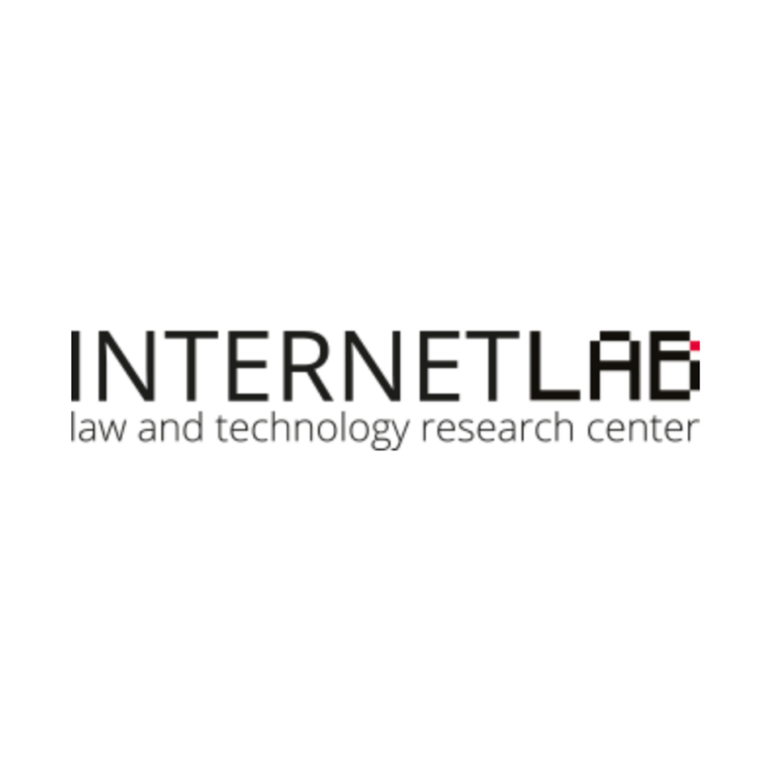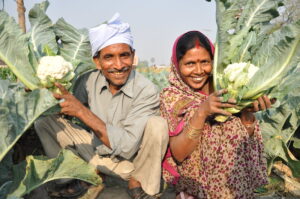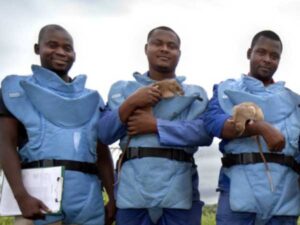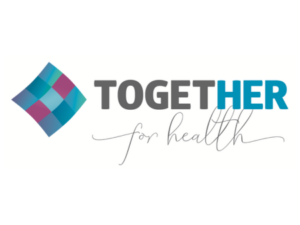InternetLab is an independent think tank focused on human rights and digital technologies. They produce evidence-based and impact oriented social and legal research, as well as rigorous analysis of critical issues.
Francisco Brito Cruz of InternetLab spoke with Lissa Harris on January 23, 2024. Click here to read the full interview with insights highlighted.
Lissa Harris: Can you start by introducing yourself and your organization, and say a little bit about the problem that you’re tackling? How are you going about solving it?
Francisco Brito Cruz: I’m Francisco Brito Cruz. You can call me Chico. I’m the Executive Director and Founder of InternetLab. InternetLab is a Brazilian-based think tank. We’re focused on internet policy and tech policy issues. Our work encompasses different problems, from surveillance to connectivity, passing through trust and safety issues, polarization, and disinformation — all of those things that are called information integrity. InternetLab is dedicated to understanding how challenges of human rights are faced in the digital sphere.
Lissa Harris: Can you talk about who you serve most directly? Who benefits most from your work, and how do you engage with them?
Francisco Brito Cruz: It depends on the project. For example, our effort towards surveillance benefits civil society work by protecting space for civil society to organize, associate, and express itself without being surveilled or controlled by authorities that can abuse their power. On the other hand, I think internet users benefit when we talk about personal safety and how platforms can understand, detect, and confront harm that can cause offline consequences. This kaleidoscope changes when we see different situations emerge from the digital world. Although I don’t much like this division between the digital world and the real world. Everything’s the world, right?
Lissa Harris: Yes, our digital lives are real life. Who do you engage with to do this work, and how do you engage with them?
Francisco Brito Cruz: A core element of our strategy is research. We like to say we’re a think tank because we don’t have the answers before asking the questions; this principle organizes our work. For example, in the Amazon region of Brazil, we’re trying to understand how low-orbit satellites are impacting the connectivity in the region. Most of them are controlled by SpaceX. We don’t have a statement on whether that is good or bad, or whether that is something we need to confront or to enhance. The idea is to understand how it’s functioning: what is working and for whom but also what is not working and what the risks are. Then, we can draw a strategy based on that information. That is the core of what we do.
In terms of how we engage, we try to understand and qualify through research, then we try to organize and give society or stakeholders a way to explain the problem, which is important. For example, we work a lot with electoral institutions here in Brazil, so we engage a lot with the Electoral Superior Court, which is the national election management body. It issues the rules for elections, and it is the main institution that organizes the democratic process here. We help the court understand the rules that are adequate for the digital realm. Are we going to ban AI or are we going to label AI? Are we going to improve platform systems to detect AI or not?
For that, we need to have a framing and to provide a framing to the court. Our research is also used for that. It’s not only gathering information, but organizing information, and at the end of the line, helping stakeholders protect human rights. While we help the court to confront harm, at the same time, we work to ensure that it protects freedom of expression.
Lissa Harris: Do you see your role as providing technical expertise to organizations with good government goals, or with human rights goals, whether they’re in the government or outside of it, as long as they have these priorities?
Francisco Brito Cruz: Expertise or knowledge? Sometimes, it’s not expertise that we have beforehand, but it’s expertise that we have reviewed. We’re using that to build bridges. Our research work is based on the assumption that we need to engage to understand. The idea is that we don’t know until we get there, and we need to involve the community or the affected individuals, not only by gathering information from them, but also by discussing strategy and the agenda for the future with them. This happens with institutions, as well, like when we had discussions with the electoral board.
I have another example. During the pandemic, many people lost their jobs and didn’t have money to survive. Different governments made different programs to provide relief. The government did that in Brazil, as well. However, categorizing people, and understanding who should receive relief funds, raised a lot of privacy concerns. While it’s important to give that money to people, it’s also important to protect their privacy. In our engagement with the government about this topic, we were concerned about the program’s functioning, so we were listening and trying to bring that concern to our attention. At the same time, we were trying to explain that some guardrails were important, and others were not. That aspect is key for understanding what we do.
Lissa Harris: Going back to the Amazon project for a moment, are you engaging with rural communities in the Amazon? How do you do that?
Francisco Brito Cruz: In that project, we are trying to take more of an anthropological approach, especially because we are dealing with indigenous populations. In trying to understand the right way to engage, we need to understand how to set the tone of the relationship. Sometimes, where there’s a lot of asymmetry, we need to understand what we should give them in terms of service, in terms of benefits, for them to be open in speaking about their lives. When we are dealing with different stakeholders, with less asymmetry, the relationship is simpler. So now, we are trying to understand how organizations that have dealt with that kind of asymmetrical relationship many times over have done so successfully. We need to have caution.
Lissa Harris: What do you think makes your approach distinctive from other organizations that are working on similar problems, or in that space?
Francisco Brito Cruz: I think it’s hard to say what makes InternetLab distinctive from organizations all over the world, but I can talk about what makes us distinctive in the context of the Brazilian or the Latin American ecosystem. Here, there is this space for doing research, gathering information, and sophisticating and qualifying the discussion. We occupy this space, and we feel it is important because within this space, we can understand how to formulate the correct connectivity agenda. If we don’t engage, then we won’t understand, and we won’t formulate that agenda with knowledge. We’re not a frontline organization, but we are an organization that discovers the problems and makes them visible.
We have been working for about five years now with political violence, especially against women, but also with other social markers. Our focus is on electoral processes, so we’re trying to understand how online violence happens against candidates marked by gender, and also marked by sexual identity, sexual orientation, or race, among other things. In 2020, when we first proposed doing this kind of mapping, we monitored a lot of candidates, and this problem emerged.
That was the first time data was collected about how many times people commented offensively about someone, and we have a lot of data on that. It’s massive, it’s industrial, it’s huge. We published a report about it saying, “This is the problem.” We were very happy that this report was able to impact public discussion, especially during the elections. In the following year, it was the main evidence used to support the approval of the Political Violence Act in Brazil, which criminalized online behavior that incites harm or harasses candidates because of their gender or other markers. It was not exactly lobbying, because we did not go to the capital, or to Congress, and stand there demonstrating. We made clear that this problem existed and made it easier for people, like representatives, to obtain that data, show it to their peers, and say, “There’s something here.”
I think that is our place in the Latin American and Brazilian ecosystem. We discover problems and try to formulate them. This helps the discussion, especially when we are talking about really intricate, complex issues like technology. How would you differentiate, for example, what’s free speech and what is not, if you are not looking at the whole picture to assess whether a single comment is okay, or not? Or when there is a swarm of comments, especially during a moment when a person needs the most visibility because they are exercising their political rights, maybe that’s a problem.
Lissa Harris: That’s a great example that illustrates the impact of your work. Are there any other examples you want to share to showcase the impact you’ve had?
Francisco Brito Cruz: During the 2018 elections here, we saw a problem regarding the campaigns’ use of WhatsApp. In Brazil, SMS was very expensive, so this kind of messaging app really thrived many years ago, and everyone has it. If you don’t take the right steps in terms of establishing company or corporate policy from one side, and state rules or regulations from the other side, this tool can transform itself into a truly problematic one, especially if you use it for bulk messaging citizens. For example, we saw campaigns using tons of personal data for spamming people with lies about a candidate, or about an idea.
We saw that as a problem, we went to the Court, and over the next three years, we worked with the Court to create rules around it. That was a pioneering effort in the region to establish dedicated rules for digital campaigning that are adherent to and address the problems of the region.
We were dealing with our Cambridge Analytica, and we were able to build some kind of structure from the regulatory side and also from the corporate side. We helped push more responsible behavior from the company, and they defended those rules together with us in 2021 in a public hearing, so I think we were able to convince them that we were right at that time.
Lissa Harris: What are some insights or teachable lessons that could be taken from your work that other people working on this problem can use, whether in Brazil or elsewhere? What have you learned that other people could learn from?
Francisco Brito Cruz: I can organize it into three learnings. The first one we already talked about. There’s no such thing as a digital world and a non-digital world, and this indicates that non-internet policy organizations or individuals will and can have good opinions about what’s happening in this sphere, and they need to be heard.
At the same time, although it’s not a different world, there are specific and complex technical things that need to be taken into account when we address problems and design solutions. We need complex solutions, not easy solutions. That’s the second learning. In 10 years of InternetLab, almost all of the easy solutions were cracked in terms of what they actually could do and what they could show us. We need complex solutions, like a toolbox. It’s hard. It’s not just pressing a button and making something disappear. People use technology in ways that you can anticipate. So when you press a button and make a feature go away, people will use other features, in a different manner.
The third learning is that strategic communication is important–not only speaking, but listening. We need to become experts by listening. It’s easy to become too insulated, especially if you don’t design ways to be open to hearing what the field is telling you. You don’t need only to have a good solution and to advertise that you have a good solution, you need to engage with or design a solution. The best solutions are the solutions that are being used, that are appropriated in the field. You need to design ways to engage, maybe with the court is one way, and with the parliament is another way. You also need to design ways to be heard, and ways to hear what others are saying.
Lissa Harris: In the tech realm, there are tech people who are invested in solving digital problems, and they want there to be a technical tool to solve those problems. However, what I see is that there is no getting around the need for there to be a human tool; am I right? That’s the tricky part. That’s what makes it complicated.
Francisco Brito Cruz: Yes, exactly. Doing advocacy or policy work is not only talking to public institutions. Sometimes, policy work is talking to corporations and designing ways to impact how they behave in a very pragmatic way. In this sense, you’re not only trying to forbid or ban a feature; you’re trying to change the minds of the people who are controlling that feature, and you’re trying to understand the dynamics inside the corporation in the same way that you understand the dynamics inside Congress. What made Meta launch a transparency feature during our election? We need to understand that because maybe this transparency feature would be key for monitoring who is paying for ads, and maybe those ads are key to understanding political violence, or to understanding attacks on democracy. Doing policy is also engaging with non-state actors, and in our field, this is especially true.
Lissa Harris: The regulators are often behind in their technical understanding of how platforms operate and how technology operates. Does your organization work on misinformation problems? That seems like a big, big thing in this sphere.
Francisco Brito Cruz: Disinformation is a huge concern for us. For example, our work to address bulk messaging was a way of tackling misinformation by designing systems that are more resilient against misuse or malicious use of misinformation. Because distributing is a problem that a misinformer needs to tackle in order to misinform. Our approach here has a multiple-component strategy. The bulk messaging example highlights the last component, which is engaging with institutions or engaging with a stakeholder like a company, having discussions, and trying to understand their strategies. Before that, we do a lot of research, and our most interesting research, in my opinion, is the research we do with messaging apps in Brazil. We do a national survey annually to understand how people are using those apps and how they’re consuming information inside those apps.
We discovered some really interesting things. One is that the people who are prone to send or share disinformation have quite a bit of money, or they’re very educated. Of course, this changed our strategy and our discussion. It’s not, “This person doesn’t have a formal education, so they’re more vulnerable to disinformation.” If we look at our data, it’s a little bit the opposite. People who are entrenched in their education and beliefs are often the supersharers who are really engaged in this activity. The way we try to understand usage is a distinctive mark in our work with disinformation.
We are developing work on another front that I think relates to disinformation, and are starting to discuss the crisis of journalism and the crisis of media. We’re not a media organization, and we are not a journalistic organization, so we don’t see ourselves as speakers on behalf of this field, but we are trying to understand how it works. This is in the initial stages, but we are developing the first economic study to explain what exactly is happening in terms of where the money is and how this market has organized itself. We ultimately want to provide solutions for the field. We understand that fact-checking is an important part of the work, but that is not the work that we do. Our most focused area of work is research and doing policy work with companies.
Lissa Harris: How do you measure success? What is the evidence that you look at to see if you’re making progress?
Francisco Brito Cruz: There is an old measure of success that year by year we’re not using anymore, which is media, or script. Sometimes, in the past, we used it for different purposes, but it became less useful because it doesn’t tell us anything more than you got a little bit of attention. That’s not the information we are seeking. It depends on the project and the strategy piece. For example, if we’re dealing with policy, like a legislative question, being quoted in the hearings or being quoted by those stakeholders would be a metric. The report that was part of the discussion about political violence being quoted is for sure a metric. Another one is being quoted in the judiciary, which could be the Electoral Court, when our strategies directly affect the judiciary, but are not providing the arguments that they are using. Being able to track that is a measure of impact for us.
When we are dealing with how we impact public discussion or public discourse, media is part of it, but another metric is hearing our arguments in different voices, from different stakeholders who have different places in the ecosystem, building a common ground of language and grammar. This happens when we are able to drive the conversation to the framing that we think is appropriate. For example, say we publish a report saying “It’s important to focus on this behavior when we are seeing this information.” If we hear that in the following months from the mouths of different stakeholders, then we can track back and say, “We were the first people to say that. We drove the conversation to that place.” That would be another metric for us.
But again, it depends on the type of project. For instance, in this economic project, the metric is more of an understanding. The impact will be in the future, when we are ready to publish and discuss the work, and to place it as a piece of knowledge.
Lissa Harris: Sometimes you learn as much from things that didn’t work as things that did. Is there an example of something that you tried that didn’t work, that you learned from?
Francisco Brito Cruz: Lots of strategies that we did to deal with the private sector haven’t worked. Some worked, but many have not. The ones that didn’t work were when we were putting too much effort into the engagement, but not noticing that the box or the department that we were trying to engage was really not interested in the same objective, or the same goals or aims that we were.
For example, how do you convince an advertisement agency that they need to see ethics? Sometimes, you’re not pulling the right levers inside this agency, or they’re only talking to you because they want visibility, or they want a bit of public media. This has harmed lots of projects here. We were naive in terms of what, exactly, the stakeholder wanted, and why they were being a little bit open to engagement, but not that open. This is not a statement that means to say to people, “Don’t engage.” I think engagement is super important. It’s more a message of, “Be a little bit more investigative in your approach.”
Lissa Harris: Keep your eyes open for not being used by stakeholders.
Francisco Brito Cruz: Or at least when you were used, know that you were. Another one was raising expectations too high on a project where you didn’t need to. When you promise too much for your team, and the projects don’t deliver because something happened, or you were wrong in managing expectations, it creates a mess with the morale and the effort that lots of people put into projects. This can cause harm in planning.
Another problem is not thinking about the field, and only thinking about your organization. If you think that you can do everything yourself, and you’re not thinking about the coalitions and the networks that are in place, or the other people looking at the subject, that is a major mistake. We’re not dealing with a hole in my street that only me and a few other people are seeing; we’re looking at issues that concern lots of people. This is why we get funding for it, right? When we think that we can do everything alone, that is a problem, I think even a major problem. We can’t, and we’ll not be as good as we can be with more people involved. We need to see ourselves as part of a broader effort.
In Congress, for example, it is very easy to explain why something can go wrong. When you have a representative and a number of different civil society organizations go into a public hearing and say totally different things, unable to build any common ground, it will create more confusion. Not being able to work in coalition, in networks, or with the ecosystem, is a big problem. I need to say that, of course, this is hard. People are hard. Working with other organizations, with different cultures and different people, maybe with people that you might not like that much, is super hard. If this were easy, it would not be called struggle.
Lissa Harris: Can you talk about broad challenges that you are still working to overcome? What are some of the big barriers to accomplishing your goals in this work, barriers that you are still working to overcome?
Francisco Brito Cruz: There’s a huge challenge in interdisciplinary work. We don’t like to see ourselves as only a regulatory/legal organization. We try to bring interdisciplinary work inside the organization so we have a broader picture of what is happening. It’s hard because having different views can be seen as a beautiful thing, but in the real world, it’s difficult because maybe there are difficulties in communication, or maybe there are obstacles in building a common ground or a common framing. Sometimes, political issues arise. That is a huge challenge and we need to work more on it. We want to work more on it.
Another one is understanding what the relationship of tech policy organizations with the private sector will be in the future. That relationship was totally different 10 years ago when I started. It really changed in Brazil after 2018.
Where is that relationship today, especially after the European legislation that was designed to tackle disinformation and violence on platforms? It creates a number of different cleavages, caveats, and fringes, and we need to understand how we’re going to relate. This is a huge challenge. In Brazil, we also face the challenge of how to deal with a reality where the government of your country was an autocrat, or nearly an autocrat, one year ago, and is not any longer. At the same time, this threat still exists and in parallel, you see that it took a lot of effort and heterodox action to prevent this autocrat and their supporters from overcoming the democratic regime.
I saw an interesting New York Times piece on that topic from the Brazilian correspondent. It’s really interesting how he compares what happened here and what happened in the US. One thing that is different is that our judiciary, especially the Supreme Court and the Electoral Court, really put themselves in the path of Bolsonaro, the autocratic leader who was trying to delegitimize the democratic process and create a situation of hate. The judiciary took a lot of heterodox fringe action, like cutting many people’s access to their social media profiles and blocking certain profiles. Lots of people went to jail for expressing themselves, and the way that they designed this protection for democracy can be criticized in terms of civil rights, even though those expressions were, in my opinion, unlawful.
The point is that once those structures are built, it’s really difficult to dismantle them. They can be used by politicians to protect the establishment’s interests, which may not always be good interests; they may be selfish, economically unjust, or special interests in general. At the same time, there is a fear of what can happen if those structures are not in place. This challenge is huge.
Lissa Harris: Could you talk a little more specifically about how you’re working to advance systems-level change in your field?
Francisco Brito Cruz: We are a 20-person organization, so for us, systems-level change is incremental. At our scale, it would be a contribution like changing some people’s minds, changing how the resilient team of a company thinks about or frames X or Y, or building a common understanding within Latin America that something is a problem. I like to see it as different contributions that can drive this change over time because systems don’t change from day to night and night to day. They’re driven by different trends, different actors, and different stakeholders, and you’re acting upon them.
I think it’s important for small organizations to disclose that they’re directly impacting people. Sometimes, they have leverage on very important, key figures. Everyone is acting at their scale. Of course, social media can change that. But at the end of the day, this issue of scale is important, and everyone needs to understand that.
Lissa Harris: What do you think is most needed from other actors, and other partners in this space, to advance systems-level change? That could be government, private industry, or NGOs.
Francisco Brito Cruz: I would say not betting on simple easy solutions, bringing more people to the table, and really making people take a crack at different problems. I also think building trust among stakeholders is so important, not only to prevent conflict from entering the room, but to have more pragmatic and evidence-based discussions. The answer is not believing that pulling a lever will solve the problem.
Lissa Harris: How do you see your work evolving over the next five years?
Francisco Brito Cruz: I think that the frontier I mentioned earlier, which divides what is digital and what is reality, is disappearing. Therefore, a tech policy organization like ours needs to refine its value proposition for explaining to people why it’s important to keep doing work and research on this topic, and at the same time, show people that you’re able to hear what they’re saying because they know what they’re saying, and they’re using this technology. I understand a lot of the regulatory levers on it, and how internal company systems are designed. Being able to hear that information without having to be in a marfim tower [ivory tower], that’s important too.
Click here to read the full interview with insights highlighted.
Lissa Harris is a freelance reporter and science writer (MIT ’08) based in the Catskills of upstate New York. She currently writes about climate, energy, and environment issues from a local perspective for the Albany Times Union, her own Substack newsletter, and various other digital and print publications.
* This interview has been edited and condensed.
Find other organizations conducting research on social innovation.







